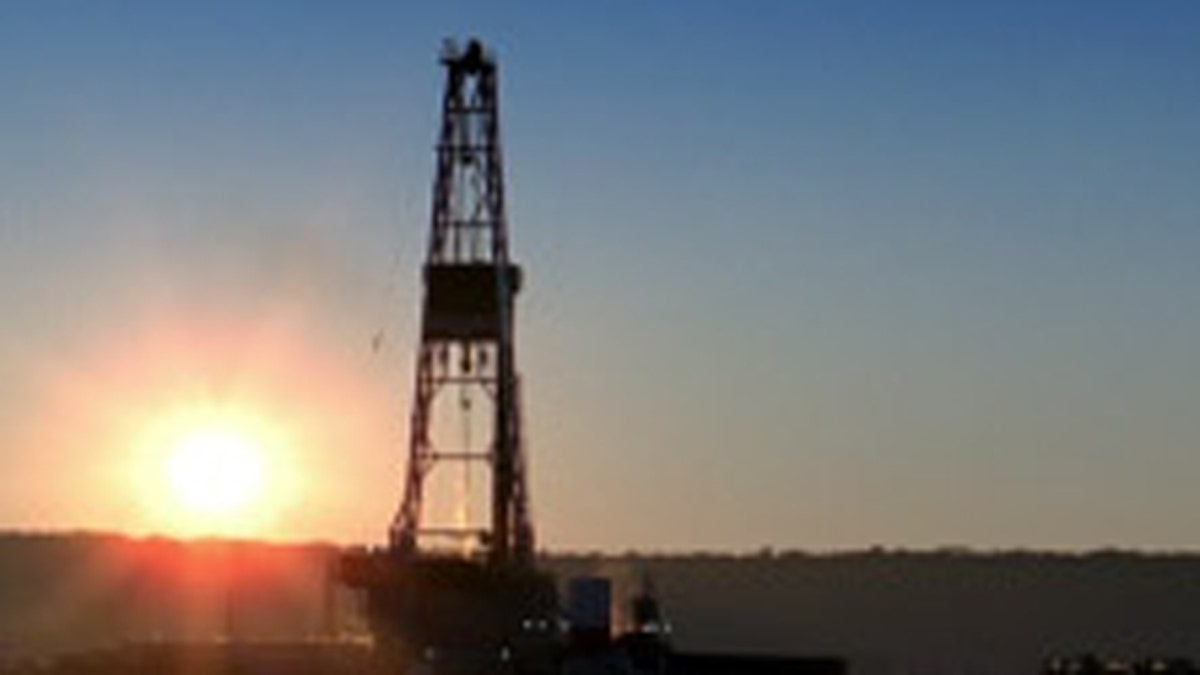
Shown here is a North Dakota oil rig. (North Dakota Petroleum Council)
North Dakota's booming oil industry has yielded record tax revenue for the state, breaking the $100 million mark in March at a time when other states are struggling to stay afloat.
The state in just the last few years has become an oil-producing powerhouse and is looking to overtake California in total production. Thanks to the activity, the North Dakota tax department reported that tax collections on oil production hit $101 million in March, marking a 24 percent increase from the prior month and a 66 percent increase from last summer.
Much of the recent increase is due to rising crude prices, which have shot up amid concerns over unrest in the Middle East. But North Dakota's oil production is also accelerating rapidly, and state officials expect the windfall to hold steady.
"We've seen a steady, steady month-by-month increase," state Deputy Tax Commissioner Ryan Rauschenberger, told FoxNews.com.
The 350,000 barrels a day produced in March was actually about 2,000 barrels a day lower than in February. But Rauschenberger attributed the dip to the weather, and said that even if crude prices return to prior levels the state expects to take in $2 billion in oil-related tax revenue over the next two years. If prices stay high, he said that haul could reach $2.4 billion -- money that goes into the schools, back to the counties and to other areas.
Amid a debate on Capitol Hill over whether the U.S. needs to do more to encourage domestic oil production, North Dakota is charging ahead with expansion. The state industry was helped in no small part by efforts over the past several years to tap into a massive oil field known as the Bakken Shale deposit, where virtually all future expansion is happening.
Production is expected to grow "substantially," Ron Ness, president of the North Dakota Petroleum Council, said. With 5,300 wells across the state and thousands more expected to come online, Ness projected that the state could reach up to 700,000 barrels a day by 2015.
North Dakota is the fourth-largest oil producing state in the U.S. behind California, Alaska and Texas, and Ness said California is in their "target zone."
He noted that the revenue has made things easier for state budgeters.
According to the North Dakota tax office, the latest two-year budget included $1 billion in savings, which is expected to go into trust funds in case of future shortfalls.
Rauschenberger acknowledged North Dakota has been "fortunate," considering the fact that many other states are dealing with sagging revenue and employment in the wake of the recession.
While the U.S. nationally is clocking in with a 9 percent unemployment rate, unemployment in North Dakota was 3.6 percent in March -- the lowest in the country.
The energy industry, along with the agriculture industry and other important North Dakota sectors, helps keep the jobless rate low, which in turn keeps people spending their incomes, which in turn feeds the state treasury along with taxes on oil production.
For calendar year 2010, more than 31 percent of state tax revenue came from oil taxes.
"We've been lucky," Rauschenberger said. "They're all inter-linked."




